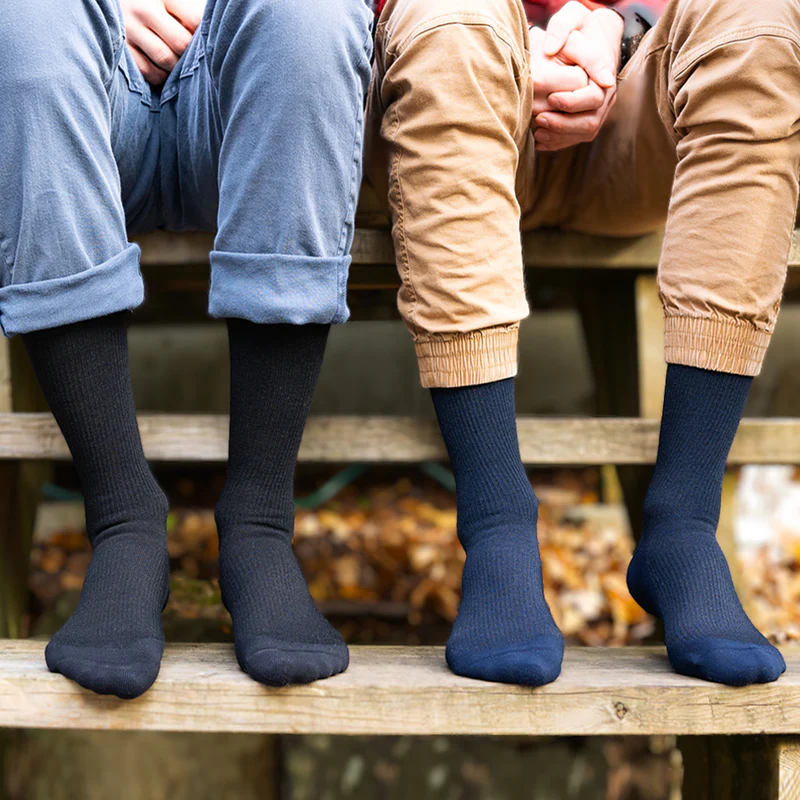
Compression Stockings: Benefits and Who Can Benefit from Them
19th March 2025
Acupuncture is part of the Traditional Chinese medicine (TCM). It evolved thousands of years ago and was based on disease prevention, diagnosis and treatment. The TCM is based on the body’s energy called qi (pronounced chi). TCM believes are that the energy flows through specific channels also known as meridians in the body. TCM works on balancing the qi in the body for spiritual, emotional, and physical health 4 .
Acupuncture is done very fine/thin needles. Mild discomfort is normal. With a little pressure, a needle is inserted into the point. They are disposed off after the treatment properly in a container. The needles are one time use only.
Dr Andrew Chung is an experienced, well-trained provider who understands meridians and is excellent at his work.
Make an appointment today to see the brightest of the smiles you would ever come across. Call 604-533-1819. Or book here
Acupuncture was developed from the Traditional Chinese Medicine. “It utilizes acupuncture points, to stimulate lines of meridians that correspond to the flow of energy through the body”
Allergic Rhinitis is an Inflammatory and immunological response. Inflammatory (inflammation of the inside lining of the nose, which occurs when a person inhales something he or she is allergic to, such as animal dander or pollen) Immunological disorder of the nasal mucosa. The response to aeroallergens is mediated through the Ig E. Allergic rhinitis affects quality of life and work productivity.
Allergic rhinitis treatment is based on the following:
1: seasonal (eg, pollens), perennial/year-round (eg, dust, mites), or episodic (environmental from exposures not normally encountered in the patient’s environment,
eg, visiting a home with pets)
2 Frequency of symptoms- intermittent (<4 days/week or <4 weeks/year) and persistent (>4 days/week and >4 weeks/year)
3 severity of symptoms- mild (symptoms are not interfering with quality of life) or more severe (when symptoms are interfering with quality of life). Severe classification includes exacerbation of coexisting asthma; sleep disturbance; impairment of daily activities, leisure, and/or sport; and impairment of school or work.
The symptoms are as follows 1,2,3 :
1 Manual acupuncture (MA)
2: Moxibustion (Mox)
3: Electronic acupuncture (EA)
4: Warm acupuncture (WA)
5: Acupuncture-moxibustion (AM)
6: Fire acupuncture (FA).
Acupuncture was found to be very effective for Allergic rhinitis. Mox Acupuncture has been established to effectively improve AR symptoms and quality of life. Mox. Acupuncture was also regarded as the most effective therapy that changes the IgE (body’s immune response). For adults with AR, acupuncture has been found to be superior in lowering the severity of nasal symptoms and improving the life quality of patients.
The effect of acupuncture and cetirizine/loratadine may be similar 2 .
References:
1: Yin Z, Geng G, Xu G, Zhao L, Liang F. Acupuncture methods for allergic rhinitis: a systematic review and bayesian meta-analysis of randomized controlled trials. Chin Med. 2020 Oct 12;15:109. doi: 10.1186/s13020-020-00389-9. PMID: 33062045; PMCID: PMC7552548.https://www.ncbi.nlm.nih.gov/pmc/articles/PMC7552548/
2: Min He1*† , Weishan Qin1†, Zongshi Qin2 and Changing Zhao3 Acupuncture for allergic rhinitis: a systematic review and meta‑analysishttps://pubmed.ncbi.nlm.nih.gov/35462555/
3: Seidman MD, Gurgel RK, Lin SY, Schwartz SR, Baroody FM, Bonner JR, Dawson DE, Dykewicz MS, Hackell JM, Han JK, Ishman SL, Krouse HJ, Malekzadeh S, Mims
JW, Omole FS, Reddy WD, Wallace DV, Walsh SA, Warren BE, Wilson MN, Nnacheta LC. Clinical practice guideline: allergic rhinitis executive summary. Otolaryngol Head Neck Surg. 2015 Feb;152(2):197-206. doi: 10.1177/0194599814562166. PMID: 25645524. https://pubmed.ncbi.nlm.nih.gov/25644617/
4: https://www.hopkinsmedicine.org/health/wellness-and-prevention/acupuncture
5: https://www.nccaom.org/resources/acupuncture-and-herbal-medicine-news-and-resource-center/
Author: Krupa Patel, Under the guidance of Dr Dr Andrew Chung.
Dr. Yuhyun “Andrew” Chung is a registered Doctor of Traditional Chinese Medicine (TCM) with the College of Traditional Chinese Medicine Practitioners and Acupuncturists of British Columbia (CTCMA). Born and raised in Seoul, South Korea, he made the transition to Canada in 2014. Additionally, he holds a Bachelor of Science in Engineering from Yonsei University in Seoul.
Dr. Andrew’s daily practice focuses on addressing a wide range of health concerns, including pain, sports injuries, stress, insomnia, depression, skin issues, and women’s health, among others. In his approach to patient care, he frequently incorporates diverse therapeutic modalities to ensure optimal results. Acupuncture, herbal medicine, gua sha, cupping, and trigger point therapy represent just a selection of the methods he employs in his practice.
Furthermore, Dr. Andrew serves as an instructor for VaCC, imparting his expertise to third-year TCM students. Presently, he is based at the Evergreen Clinic in Langley and Surrey.
Dr. Andrew possesses a strong educational background and extensive training, including:
* Bachelor of Science (B.Sc) degree from Yonsei University.
* Graduated with Honors in Acupuncture (D.Ac) from PCU College.
* Graduated with a Doctor of Traditional Chinese Medicine degree at Tzu Chi International College of Traditional Chinese Medicine.
* Registered Acupuncturist (R.Ac.).
* Registered Doctor of Traditional Chinese Medicine (Dr.TCM)